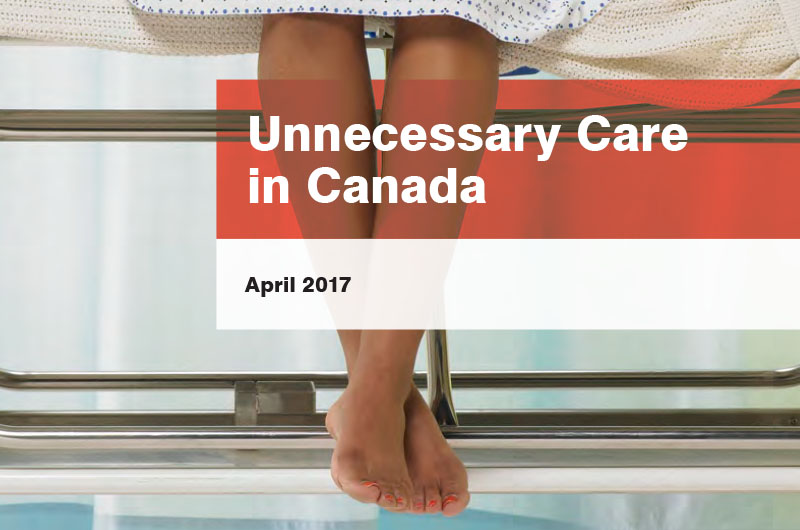Unnecessary Care in Canada: CIHI and CWC Joint Report Released
Apr 5, 2017 - News
Report finds that up to 30% of select medical tests, treatments and procedures in Canada are potentially unnecessary.
Unnecessary Care in Canada: CIHI and CWC Joint Report Released
Apr 5, 2017 - News
Report finds that up to 30% of select medical tests, treatments and procedures in Canada are potentially unnecessary.

A new report, Unnecessary Care in Canada, released by the Canadian Institute for Health Information (CIHI) and Choosing Wisely Canada, finds that up to 30% of selected medical tests, treatments and procedures in Canada are potentially unnecessary and that Canadians have more than one million potentially unnecessary medical tests and treatments every year. The report, released today – April 6th, uses data to measure the extent of unnecessary care associated with 8 tests and procedures that span the health system. Unnecessary tests and treatments waste health system resources, increase wait times for patients in need and can lead to patient harm.
This report also details success stories — from national and facility-level organizations as well as from individual clinicians across the country — of using the recommendations to identify and reduce unnecessary care.
Highlights from the report include the following:
- Almost 1 in 3 low-risk patients with minor head trauma in Ontario and Alberta had a head scan in an emergency department, despite a Choosing Wisely Canada recommendation that this is unnecessary and potentially harmful.
- 1 in 10 seniors in Canada use a benzodiazepine on a regular basis to treat insomnia, agitation or delirium. A number of Choosing Wisely Canada recommendations highlight the harms of long-term use of these medications.
- In Ontario, Saskatchewan and Alberta, 18% to 35% of patients undergoing low-risk surgery had a preoperative test, such as a chest X-ray, ECG or cardiac stress test. Choosing Wisely Canada recommendations highlight that these tests are unnecessary, are potentially harmful and can delay surgery.
- For children and youth in Manitoba, Saskatchewan and British Columbia, the rates of low-dose quetiapine (likely used to treat insomnia) increased rapidly to 186 per 100,000 in 2013–2014 from 104 in 2008–2009.Choosing Wisely Canada recommends against the use of this medication in children and youth to treat insomnia.
View the report in its entirety here.
In case you missed it, watch the video recording of the webinar discussing the contents of the report.
